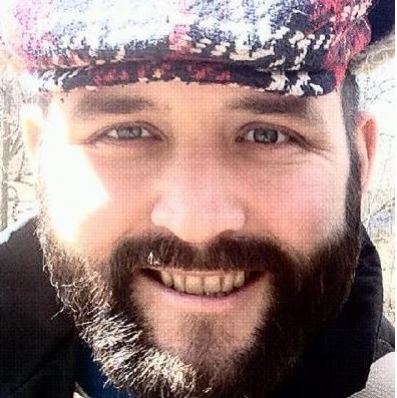
For the last 6 months I’ve been writing articles and discussing my experience in regards to the Esri technical certification program. You can see a list of my prior articles below.
– Esri Technical Certification: Why am I going to take it?
– Preparing for the Esri Desktop Associate Exam
– Esri Technical Associate Certification: how I passed the test
Now that it’s all over (Yes I am fully certified now!) I’ve gotten in touch with Esri as I have some questions about the certification and the process.. After a bit of back and forth I was put in in touch with Jessi Mielke (@JessiMielke). Jessi is Esri’s Certification Program Manager and was a terrific person to discuss the certification program with. What follows is my discussion with Jessi about the history of the Esri certification and all the questions keeping me up at night now that I am certified.
Brian: First thank you for taking the time to talk to the GoGeomatics Canada community. What inspired Esri to start down the path of the Esri Certification Program?
Jessi: As Esri grew as an organization, it became apparent there was a need to establish a community of qualified users who are proficient with Esri technology best practices. Esri Technical Certification helps to achieve this. The GIS industry itself has also grown, which has led to a more competitive job market. Job seekers are looking for more opportunities to differentiate themselves in the market, and achieving an Esri certification can help them do that.
Brian: Before I discovered the Esri certification program, I used the web-based courses as a means of learning new material in ArcGIS to expand my knowledge in key areas such as cartographic representation. I’ve found these courses to be well-honed such that I learned enough to contribute to my workplace from what I learnt. However, I’ve found a gap in what was covered on the test and what is available to learn through the online self-paced web courses. Are there any plans to bridge that gap?
Jessi: To some extent, there will always be a gap between the content provided in Esri’s web courses and certification exam topics. This is natural because, while formal education and focused training will certainly help a candidate achieve certification, exams are ultimately intended to test the candidate’s proficiency with Esri software, which requires practical, hands-on application of the software.
That being said, Esri offers a variety of resources candidates can use to prepare for an exam. Besides web courses, candidates can take advantage of Esri MOOCs, ArcGIS Help documentation and tutorials, and tutorial-type articles in Esri publications like ArcUser. ArcGIS for Personal Use is another great way for candidates to get the hands-on software experience that is so important for exam success. For the future, we are considering new exam specific resources like study guides.
Brian: Sometimes, being able to answer questions verbatim or answer from multiple choice isn’t the same as using it to solve problems in the workplace. Is there any impetus for the Esri Certification Program to move beyond a series of multiple choice questions as a means of certifying baseline competence? Iwould suggest using something like timed exercises within the test?
Jessi: We have explored including advanced item types, or exercise-driven testing, and though we have no current plans to do so, I wouldn’t rule out incorporating alternative testing methods in the future. Candidates should know that our multiple choice exam items (questions) are designed using psychometric best practices to test varying levels of cognitive complexity. This means we create items that test simple recall (the verbatim you mention) as well as items that require analysis and evaluation.
Brian: For those who are new entrants to the GIS marketplace in Canada, obtaining a solid position can become a catch-22. Many jobs require experience using ArcGIS Server and yet in order to obtain experience need to work for someone. GIS users on a budget interested in GIS administration might see the certification program as a means of proving competence in absence of real workplace experience. Do you have any advice on where to start? For example, Esri offers limited trials of ArcGIS Desktop and plenty of self-directed courses, but little analog on the server-side.
Jessi: It’s certainly a challenge that all potential employees (and employers) face. Regarding the certification program, candidates should fully explore all exam offerings and review both the qualifications and the skills measured to determine which exam best suits their current knowledge and experience.
I’d encourage job seekers to not just rely upon technical certifications, but to take advantage of the vast GIS user community. Attend local Esri Canada user conferences and events, and engage with the Esri Young Professionals Network to find peers and mentors. Participate in paper sessions and technical workshops to gain as much knowledge as they can. Explore university career centers for volunteer opportunities and internships. The more that individuals are willing to make connections and use self-directed learning and application, the more likely they are to be successful. This translates to both the job market and exam performance.
Brian: When looking at the Esri Associate and Professional exams, who do you believe this certification is for?
Jessi: Associate and Professional exams are geared towards professional users of Esri products across a variety of domains and tracks. We recommend candidates have anywhere between 2-7 years’ experience working with Esri technology depending on the exam for these two levels. Esri aims to create detailed candidate qualifications for each exam that helps to clearly describe a qualified candidate for the specific exam.
Brian: The Associate Exam for Desktop has a “Skills Review” course. Is there a plan in the works to expand that style of class to any of the other certification qualifications which you offer?
Jessi: Fantastic question! We often receive requests for more information as to how candidates can best prepare for a certification exam. At present, we don’t plan to create additional Instructor-Led training offerings. We’re in the process of exploring which preparation resources have been most beneficial to candidates in the past and are looking to expand our certification-specific preparation offerings going forward. Esri does offer free e-Learning courses aligned with each exam that provide candidates with sample exam questions. These sample question sets are intended to help set the expectation for the types of questions that might be asked on an exam and the rationale behind a correct response option. We do encourage candidates to thoroughly review the skills measured by each exam as part of their preparation efforts and focus preparation efforts by determining any skills gaps that may be present in their knowledge based on that list.
Brian: Thank you Jessi for taking the time to tell us about the Esri Technical Certification Program.
Special thanks to Joy Chan, public relations specialist for Esri Canada (@EsriCanada), who was able to make this interview possible.





Be the first to comment